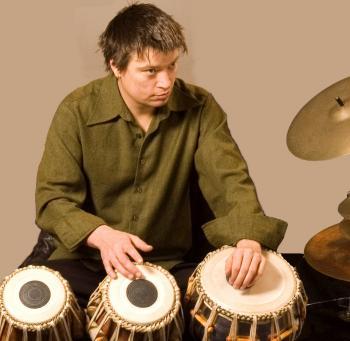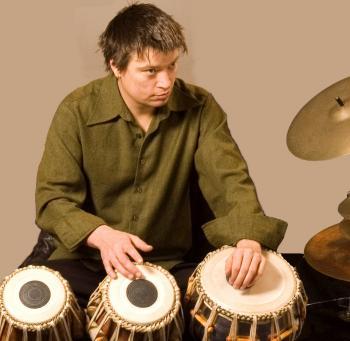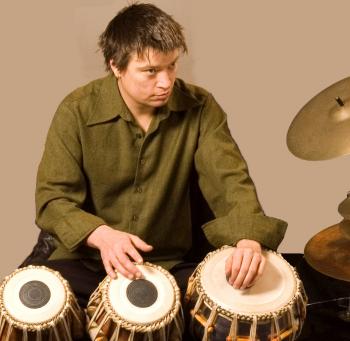MELBOURNE—It is ironic that we think of stories as being measured in and conveyed by words, ironic because most stories that we carry in our somewhat obscured memories are lived and inscribed by our senses more often than words.
Melbourne musician Sam Evans has been busy forging and telling a new story with the most melodic and complex percussion instrument that has become his life and love—tabla.
He is part of the Fine Blue Thread trio, a project with Indonesian singer Ria Soemardjo and well known cellist Helen Mountfort. The trio have been playing sell out shows throughout Australia and have received rave reviews for their debut album, Red Mountain.
Mr Evans is unique in that he also plays alongside virtuosi of classical Indian music in India, an honour rarely accorded to a non-native. But he is adamant to give tabla a new voice and a new cultural context.
“I started learning tabla because I was playing drum kit before that for 20 years and had decided that I wanted to find something that had a little more to it, a little more history, a little more repertoire and depth to it. And so I ended up playing traditional Indian tabla because I wanted to learn tabla, not because I wanted to learn Indian music,” Mr Evans told The Epoch Times.
Indeed, Mr Evans hopes that the tabla, just like other instruments with iconic sounds, can one day relieve themselves of their strict past associations and be appreciated in their own right.
“I’ve always been a bit of an improviser, a bit of a jazz person and so tabla for me is the next voice.”
Mr Evans explains that in Indian music “there are very strict rules and within those rules there is room for improvisation. It lacks the kind of expression that I’m looking for. It’s always the same form.
“With Fine Blue Thread and the album Red Mountain my goal is to not play Indian music. I try very hard not to play Indian phrases or lines and use the instrument just as an instrument for its own voice.”





